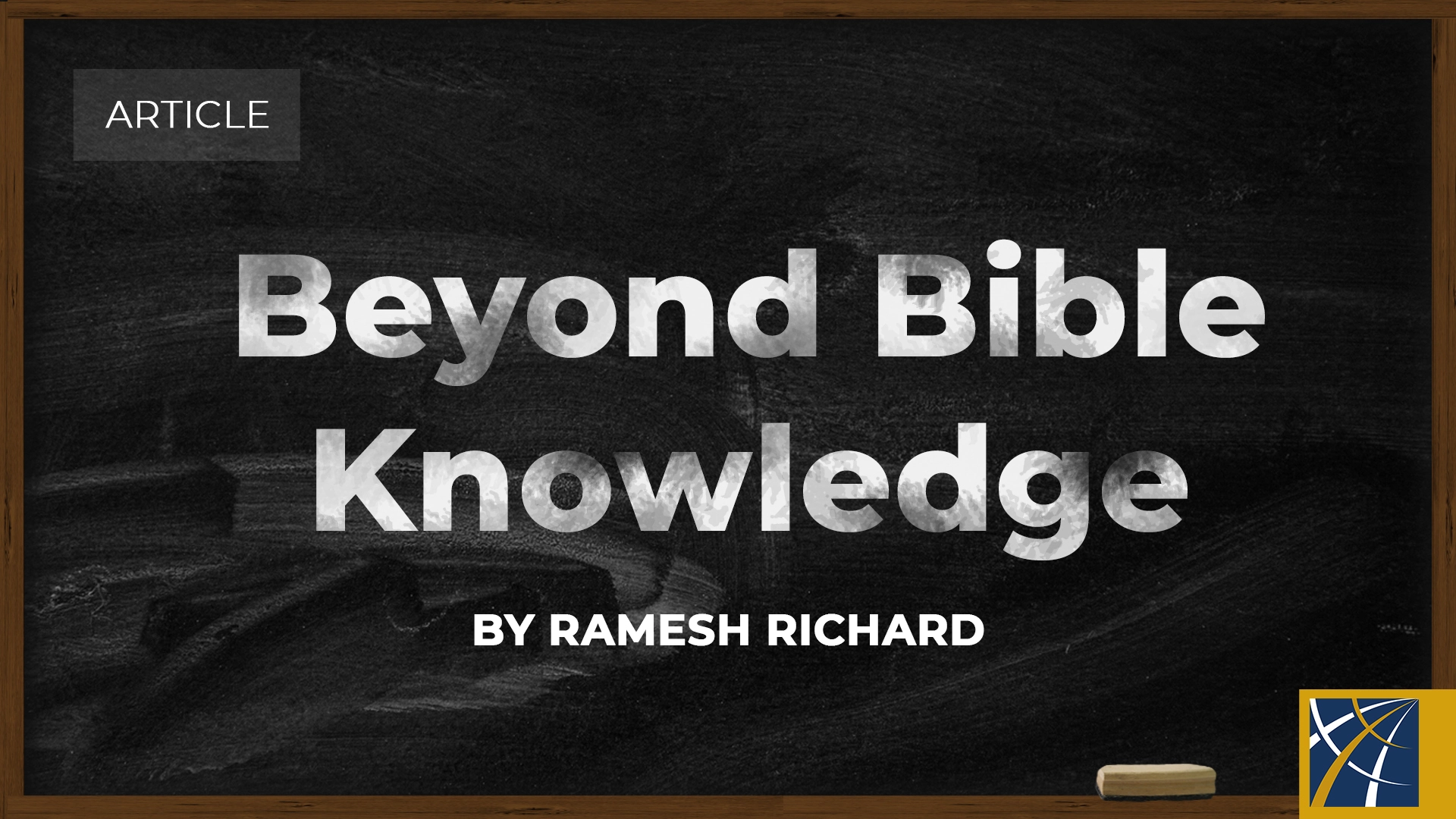January 2012
by Ramesh Richard
IT—probably most known as a one-syllable short form for eight! In-for-ma-tion Tech-no-lo-gy, or for whatever you want to do in expensive tennis shoes—“just do it.” Actually, “it” can represent any thing—really anything. The prior context of “it,” stated or unstated, immediate and larger, comes into play in understanding its meaning. So let’s get with it.
“Faithful is He who has called you, Who will also do it!” (1 Thess. 5:24) is the verse my late father-in-law gave to me when I was starting out in U.S. ministry over 35 years ago. I hang on to that confident statement for personal courage each time I start on anything new—a new season, a new project, another trip, even a New Year.
What’s the “it” here? The immediate context is an incredible prospect. The apostle Paul has just prayed: “Now may the God of peace Himself sanctify you entirely; and may your spirit and soul and body be preserved complete, without blame at the coming of our Lord Jesus Christ” (v. 23).
It begins with the God of peace. In our fear-filled, even strife-filled lives, God Himself is the source, creator and giver of peace. He provides peace internally, though there is external uproar; spiritually, though there is circumstantial chaos; eternally, though there is temporary upheaval. Paul loves to call Him the God of peace (cf. Rom. 15:33; Phil. 4:9) for He promised His unique and special kind of peace in a world of tribulation (John 14:27).
This God of peace takes us through life’s tumult and noise with a purpose in mind—a five-syllable, theologically-loaded word: “sanctification,” simply meaning “separation.” God is separating us, preserving us, and purifying us for Himself. This sanctification process is total, entire and complete—spirit, soul and body—till Jesus’ coming. That’s it.
A couple of implications for the upcoming New Year, an opportunity for a “new” everything:
First, I am not in charge of my spiritual life, my sanctification process. God started it and will finish it. If I was the cause of my own sanctification, I would fall into superstition and cleverness. I would attempt to manipulate and manage God, and I don’t think He would like that. Instead, I simply respond to His initiatives on my behalf—the resources He has given to me in salvation. I respond to what I know of Him, who I am in Him, and how He wants to change me. I meet the heart-conditions and He causes the growth.
Secondly, I am also not in charge of my neighbor’s spiritual life. If I was the cause of my neighbor’s sanctification, I would fall into legalism and control. God has His own sanctification pace with my wife, kids and friends. If I can’t even change my own self, why and how would I go about changing someone else? That would be an exercise in frustration. I can teach, model and encourage others toward spiritual growth. Only I can’t change them. But God, Who has called them, too, will do it.
Paul was so sure about God taking absolute responsibility for people’s growth that he unequivocally declared the irrevocable: “For I am confident of this very thing, that He who began a good work in you will perfect it until the day of Christ Jesus” (Phil. 1:6).
Remember that previous context influences the meaning of “it?” In Philippians, the “good work” refers to God’s sanctification-work in each person. But in the immediate context, Paul had just referred to their service-work—their partnership in gospel proclamation through sharing of resources. That is, God starts our good work of service for Him … and perfects it.
Our calling by the faithful God then, is not only to sanctification, but also to service. There is also a third, a technical sense of “calling,” where God has called us to salvation (2 Thess. 2:14). All of it—salvation, sanctification and service calling—is God’s initiative and implementation through us in one package. And a complete one—your spirit, soul and body presented without blame at His coming (1 Thess. 3:13).
All this because God is faithful. Faithfulness is His character, His very nature. You may enjoy using the cross-referencing feature in your Bible program to learn more about the faithful constant: Your God. Some excerpts for the New Year:
He is faithful in all He does (Psalm 33:4)
The LORD is faithful to all His promises (Psalm 145:13)
…the Lord is faithful, and He will strengthen and protect you from the evil one (2 Thess. 3:3)
If pandemonium breaks loose in your life next year, if turbulence comes upon our unpredictable existence, the God of peace is personally faithful and reliably good. His compassions never fail; great is His faithfulness (Lam. 3:23).
We looked at “what’s” the “it”—calling to sanctification, salvation and service. What if we considered “who’s” the it? Did you play the schoolyard game where one player is “it?” Then the “it” attempts to tag another, to make a new “it.” Guess what? You are “it.” I am “it.” God has touched you, tagged you in the divine play, and now He wants you to touch a bunch of people with “it.” The only difference in the sanctification game is we don’t transfer our “it.” We all become “its”—and He will present all of us entirely, totally and perfectly to Himself.
One more “it,” a comforting it as you face a New Year. In the middle of a series, the Psalmist recommends: “Commit your way to the LORD, trust also in Him, and He will do it.” What do you think “it” is? Looking forward to hearing from you about it.






